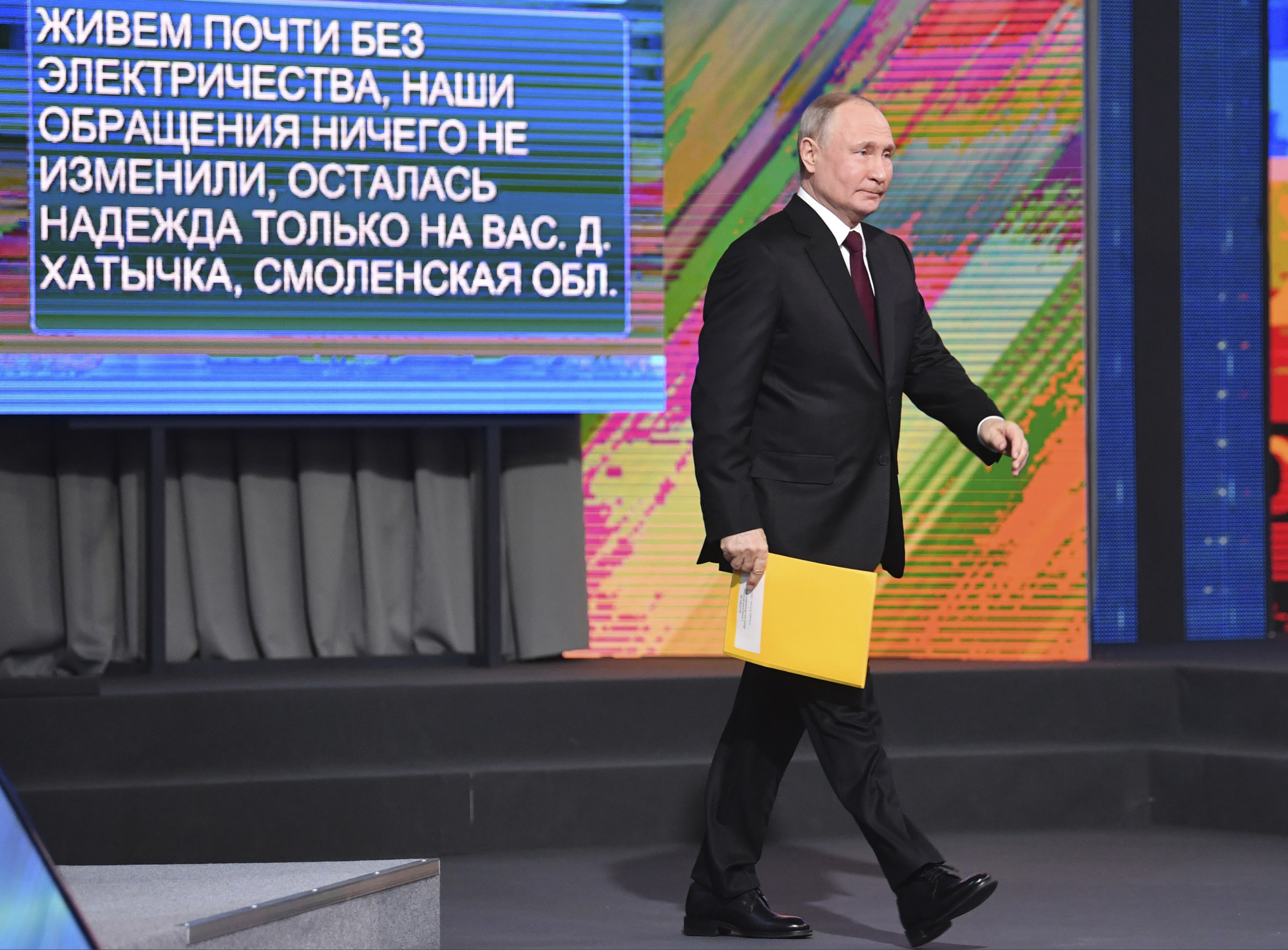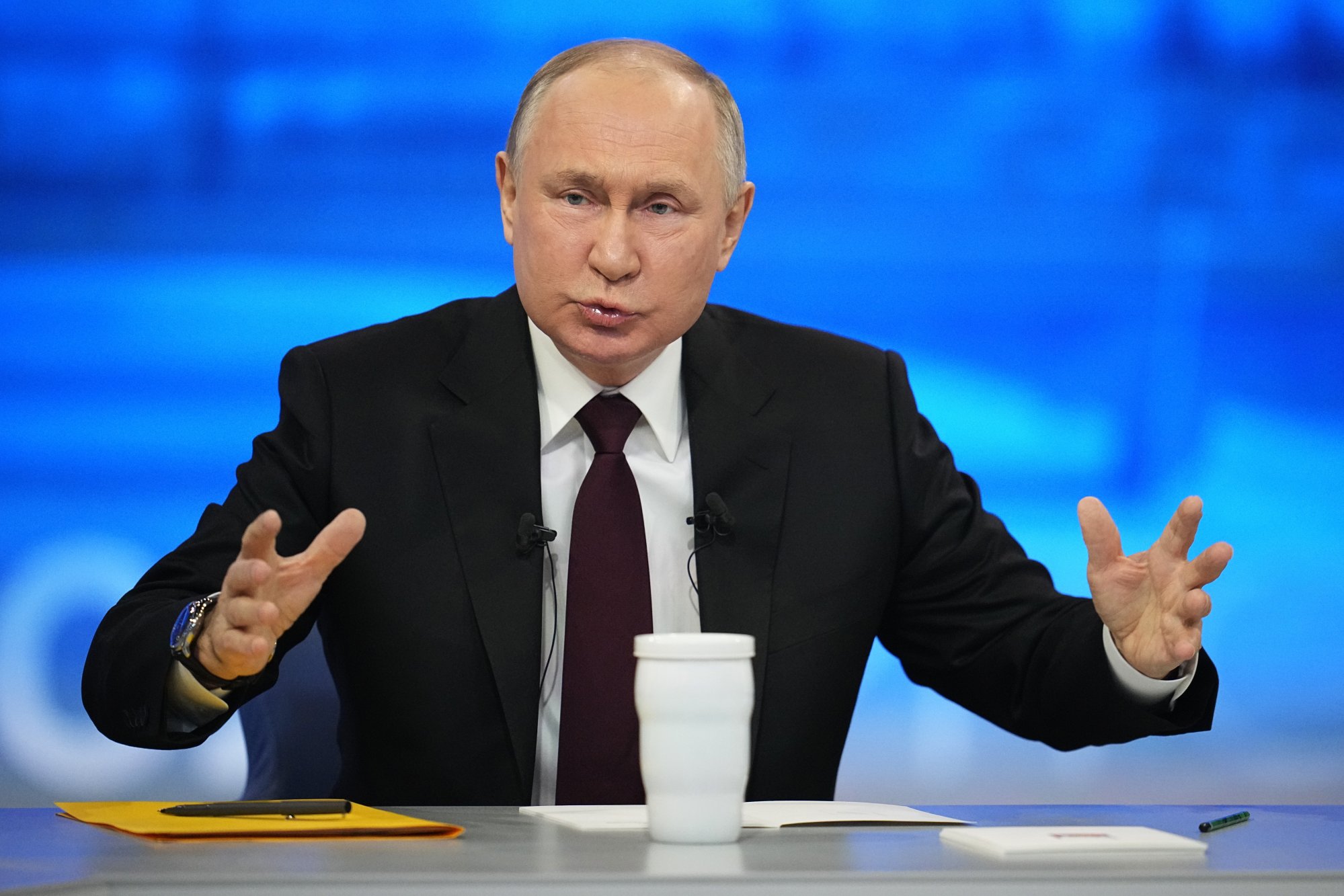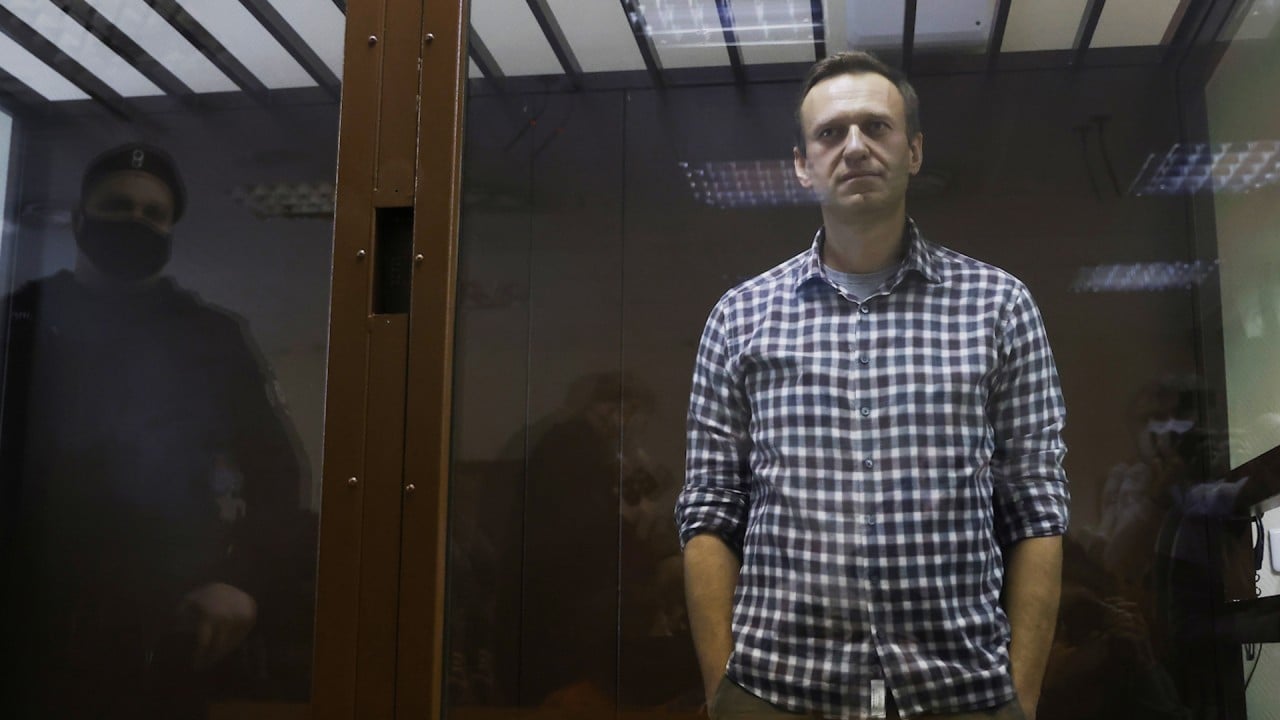
Russia’s Vladimir Putin says no peace in Ukraine until goals are achieved, vows victory at year-end conference in Moscow
- Putin voiced renewed confidence in Russia’s offensive in Ukraine, as he staged a marathon press conference a week after announcing plans to stay in the Kremlin
- The Russian president said that nearly two years of Western sanctions and international isolation had done little to hurt Russia’s economy or morale
Russian President Vladimir Putin vowed Thursday that there would be no peace in Ukraine until his goals are achieved, and said those objectives remain unchanged at a year-end news conference that offers the leader an opportunity to reinforce his grip on power.
The Russian president, who has held power for nearly 24 years and announced recently he is running for re-election, was greeted with applause as he arrived in the hall in central Moscow.
Offering rare detail on Moscow’s operation, Putin dismissed the need for a second wave of mobilisation of reservists, saying there are some 617,000 Russian soldiers currently in Ukraine, including around 244,000 troops who were called up to fight alongside professional Russian military forces.
Looking relaxed and bolstered by Kyiv’s recent struggles on the battlefield, the 71-year-old Russian leader brushed off nearly two years of Western sanctions and reaffirmed his maximalist goals in Ukraine.

“There will be peace when we achieve our goals,” Putin said about the country’s “special military operation”.
“They are not changing. I will remind you what we talked about: the denazification and demilitarisation of Ukraine, and its neutral status,” Putin said, adding that Russian forces were “improving their position on almost the entire line of contact”.
“Denazification” refers from Russia’s allegations that the Ukrainian government is heavily influenced by radical nationalist and neo-Nazi groups – claims derided by Kyiv and the West.
Putin’s bravado comes at one of the lowest points for Kyiv.
Its summer counteroffensive fizzled out without making much progress and its Western support is fraying due to growing fatigue amid some US lawmakers in Washington and frictions within the European Union.
Putin appeared to point to these, stressing that nearly two years of Western sanctions and international isolation had done little to hurt Russia’s economy or morale.
“There is enough for us not only to feel confident, but to move forward,” Putin said.
The echoes of Russia’s military operation reverberated in the grand hall in central Moscow where hundreds of journalists passed four police checkpoints to hear Putin speak.
Russia said it had downed nine Ukrainian drones heading for Moscow just hours before Putin’s event was set to kick off.
Ukraine said it had shot down 41 of the 42 Iranian-designed drones launched by Russian forces at the southern city of Odesa, in a barrage that wounded 11 people.
Putin’s choreographed call-in show was cancelled last year as Moscow reeled from the shock of early failures of its military operation, where Ukraine managed to repel the Kremlin’s assault on Kyiv and then regain territory in the east and south.
Ukraine’s strong resistance and support from its allies had surprised observers around the world and in Moscow, where many had expected to conquer Kyiv in a few days.
But almost two years into his offensive, Putin appears to be sensing the tide turning in his favour.

Putin’s call-in show coincided with a crucial summit in Brussels during which Ukraine had hoped to secure a clear path to membership of the European Union.
But that drive has been hampered by Hungarian Prime Minister Viktor Orban, a Putin ally who has caused anguish in both Kyiv and Brussels but standing firmly against Ukraine’s membership.
Orban reaffirmed that position before the start of official talks in Brussels on Thursday, telling reporters that Ukraine had not yet met the “merit-based” criteria to join the 27-nation bloc.
“There is no reason to discuss anything because preconditions were not met,” Orban said.
Russia’s military resurgence prompted Nato chief Jens Stoltenberg to warn on Thursday that Putin could attack other countries if Western military support for Kyiv fades.
“If Putin wins in Ukraine, there is real risk that his aggression will not end there,” Stoltenberg said in Brussels.
“Our support is not charity – it is an investment in our security,” he said.
Putin has previously demanded that Ukraine remain neutral – and not join the Nato alliance.
Putin was bolstered also by Ukrainian President Volodymyr Zelensky’s visit this week to Washington, where he failed to overcome Republican opposition in Congress to approving a new US$60-billion aid package.
Moscow, meanwhile, is still able to sustain its military effort through oil sales, which Putin discussed during a trip this month to the UAE and Saudi Arabia where he was received with full honours.
In any case, Putin’s re-election campaign, which he launched last week, is unlikely to be forced to address the real economic and human costs of the offensive.
His biggest challenge since the start of the operation came during a wave of protests that sprang up in response to a military call-up that the Kremlin organised in the summer of 2022.
The fear of being enlisted in the army set off temporary panic among draft-age men, prompting tens of thousands to flee into neighbouring former Soviet republics and countries such as Turkey.
Any political resistance to Putin has also been muzzled by an intensifying crackdown on dissent.
Putin’s most high-profile rival, Alexei Navalny, is currently serving a 19-year prison sentence on political charges.

.png?itok=arIb17P0)

